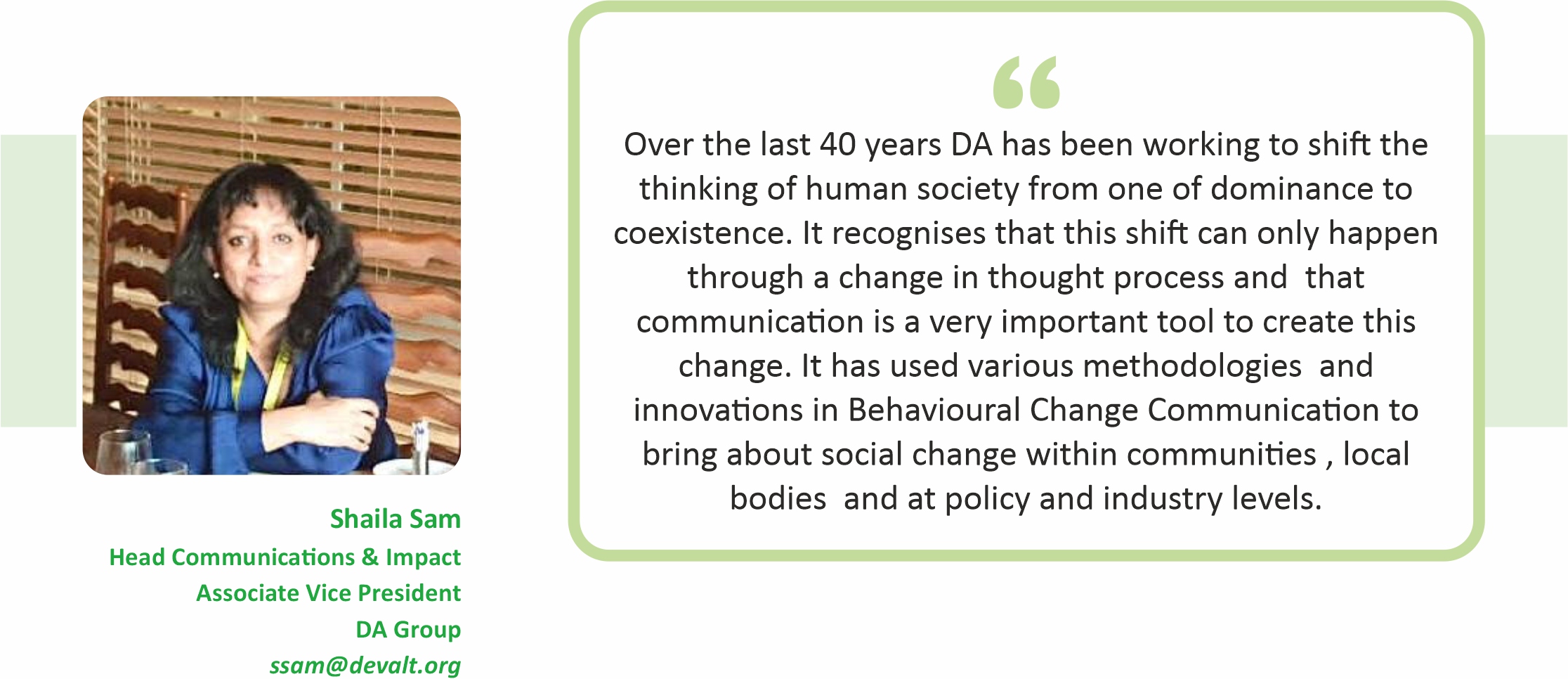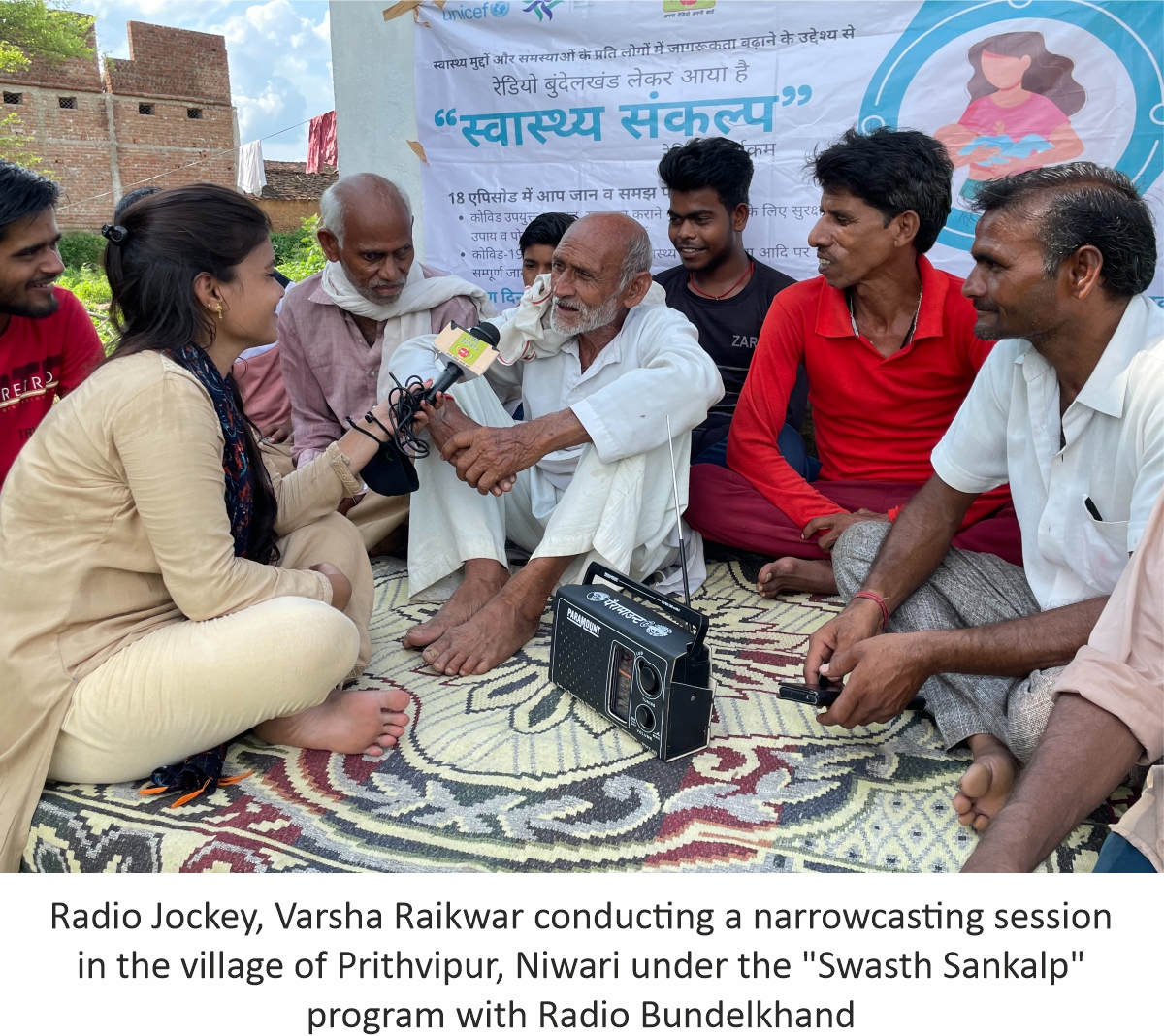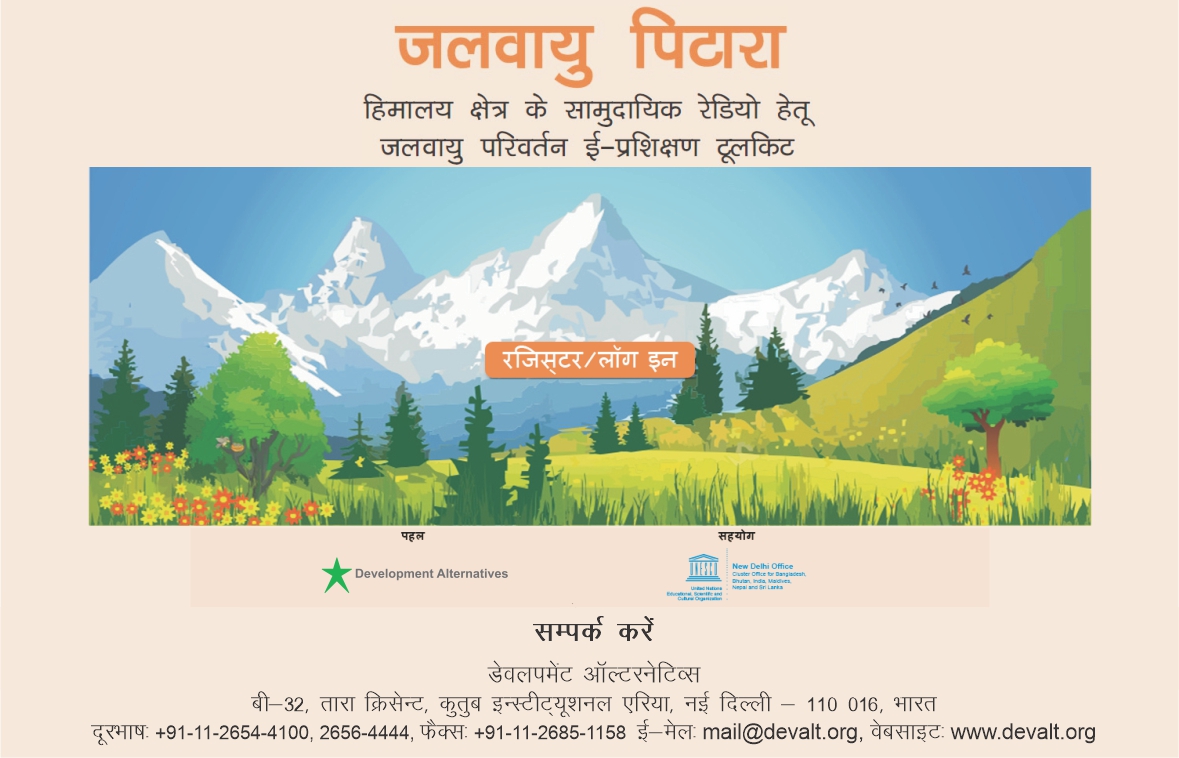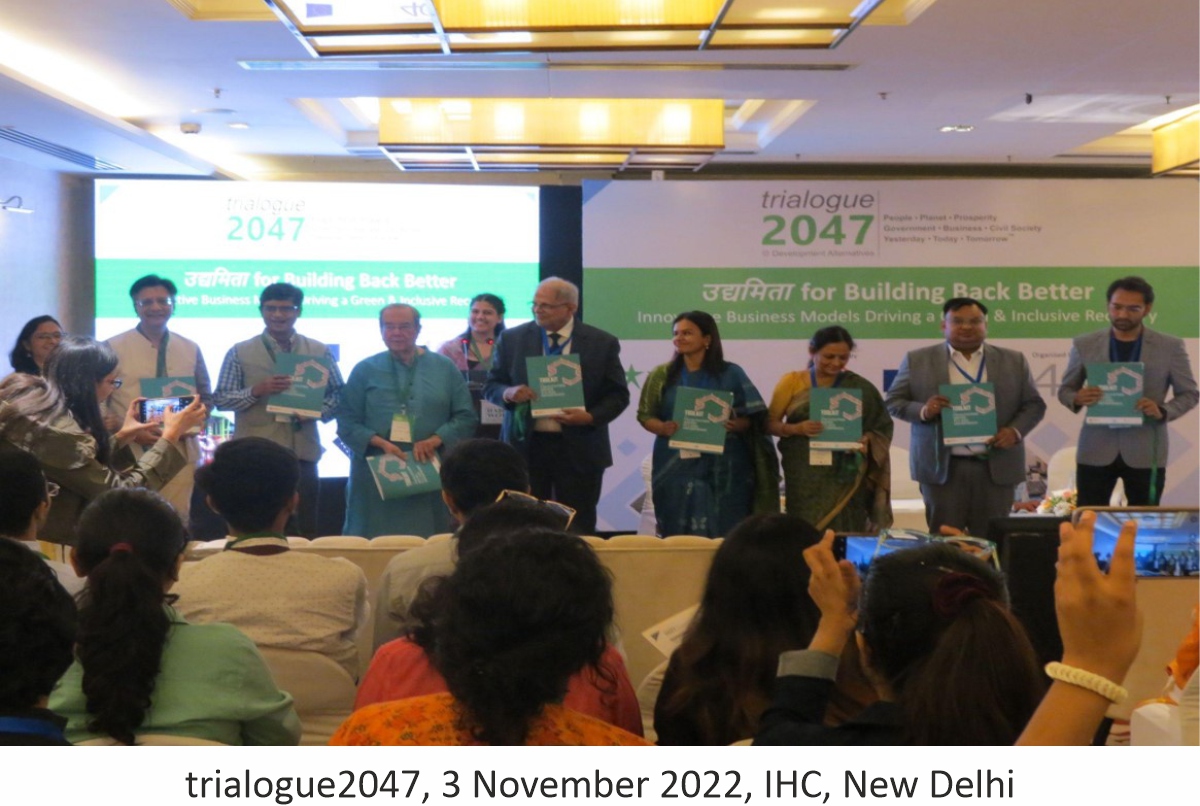Communication for Transformational Change

Behavioural Change Communication is perceived as a new genre in communications, but Development Alternatives has been working on this for years and has a legacy of achievements that it takes pride in. The organisation believes that if we have to work towards a vision where humans need to live in harmony with nature, then we must learn the art and science of co-existing. This can only be achieved through an attitudinal shift brought about through Behavioural Change Communication.
 Over the last 40 years,
Development Alternatives has been working to shift the thinking of human
society from one of dominance to that of coexistence. It has many
innovations to its credit in behavioural change communication that have
brought about social change within communities, local bodies and at policy
and industry levels. The interventions are in the areas such as saving
resources, ecosystem restoration, mitigating climate change and creating
resilient and prosperous communities—all targeted towards achieving the
outcome of mutual coexistence between humans and nature.
Over the last 40 years,
Development Alternatives has been working to shift the thinking of human
society from one of dominance to that of coexistence. It has many
innovations to its credit in behavioural change communication that have
brought about social change within communities, local bodies and at policy
and industry levels. The interventions are in the areas such as saving
resources, ecosystem restoration, mitigating climate change and creating
resilient and prosperous communities—all targeted towards achieving the
outcome of mutual coexistence between humans and nature.
Behavioural Change Communication: For Communities (B2C)
Development Alternatives has long past recognised that an educated and financially independent woman is a contraceptive in herself and a good mother who raises citizens to be the pride of the country. Thus Development Alternatives’ TARA Akshar-A literacy programme for adult women transformed the lives of 225,000; the domino effect has been felt in the communities that these women live in. TARA Akshar focused on providing basic literacy to women aged 25 and upwards who have never been to school. The modules created in TARA Akshar are the actual behavioural change communicationtools. The training imparted goes beyond basic literacy and is designed to make women empowered and thus enable social change.
Radio Bundelkhand is an outstanding example of behavioural change
communication tool. It has clearly shown that a rural community can be
successfully sensitised on the issue of climate change and mitigation. The
farmers in the Bundelkhand area now understand that many of the issues they
face are related to climate change. As a result, villages in Bundelkhand
have started adopting new agricultural best practices to ensure good growth,
better income and living conditions.
 We have also created the ‘Jal Vayu
Pitara’, which was an online, self-learning, interactive e-toolkit in Hindi
for community radios of the Himalayan region. It was designed to build the
capacities of community reporters regarding effective grassroots climate
change communication. With this skill, community reporters, who are
community members themselves, can initiate a dialogue on climate change
amongst communities and help them in making sense of the bewildering changes
that they are experiencing and relate it to their lives and help them be
better prepared.
We have also created the ‘Jal Vayu
Pitara’, which was an online, self-learning, interactive e-toolkit in Hindi
for community radios of the Himalayan region. It was designed to build the
capacities of community reporters regarding effective grassroots climate
change communication. With this skill, community reporters, who are
community members themselves, can initiate a dialogue on climate change
amongst communities and help them in making sense of the bewildering changes
that they are experiencing and relate it to their lives and help them be
better prepared.
Similarly, Development Alternatives has worked in waste management in peri-urban areas to sensitise residents of small towns on the importance of waste segregation, reducing the use of plastics and keeping spaces waste free. The project with UNEP on Promotion of Countermeasures Against Marine Plastic Litter in India and South East Asia is one such example. Today as part of restoring ponds across Northern India, we are working closely with communities through various behavioural change tools to ensure that the local ponds are nurtured as natural spaces so that, instead of being treated as dumping grounds, they can play their role in mitigating climate change.
Our current work on Citizen Science is another very important initiative in behavioural communication.
Behavioural Change Communication: For Business and Industries (B2B)
Recognising the need for industry to be more sustainable and encouraging it to adapt and adopt practices that lead to green technologies and practices, Development Alternatives has worked closely with businesses and governments through workshops, media meetings, dialogues, reports and practice to policy platforms. Through these initiatives, we hope that there will be a reduction in CO2 emissions.
Development Alternatives’ two flagship events—Trialogue and TARAgram yatra—are
used as behavioural change communication tools for B2B interactions.
Trialogue 2047 is Development Alternatives’ quarterly event where leaders
and specialists come together and deliberate on important issues that are
current and need to be addressed at policy levels. Similarly, TARAgram yatra
 is
our annual event where we have the participation of industry, civil society
and academia on the current burning issues. The participants travel with our
teams to the field, understand the challenges and issues and then deliberate
and bring in their experiences to discuss solutions.
is
our annual event where we have the participation of industry, civil society
and academia on the current burning issues. The participants travel with our
teams to the field, understand the challenges and issues and then deliberate
and bring in their experiences to discuss solutions.
These B2B interactions set the course for further conversations and systemic change. One such example is our success in green cement and the brick kiln industry in Bihar. We not only brought in green technology innovations but also convinced the industry to adopt these innovations to reduce CO2 emissions.
In the future Development Alternatives hopes to innovate many more such
tools that are the consequence of a demand identified during the course of
its work with communities and industry and the world at large. These tools
will be created and incubated at Development Alternatives but will be shared
with communities and industry so that the impact is at scale.